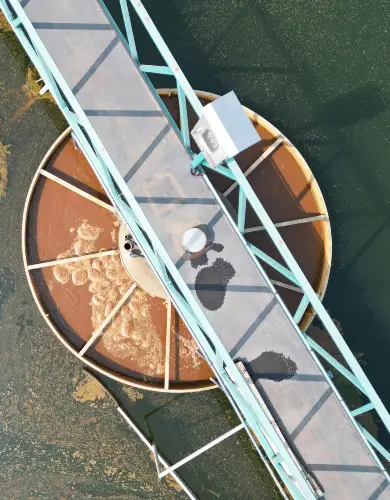Demand flexibility service for business
The National Grid’s demand flexibility service offers cash for businesses willing to change the timing of their electricity use. In this article, we’ll tell you everything you need to know about the demand for flexibility services for business and how your company can benefit.
What is the demand flexibility service for business?
The demand flexibility service is designed to solve a growing problem in the British electricity grid – matching supply with demand.
In the push for decarbonisation, more and more of our electricity is generated by wind farms. On a windy day, British wind farms will now almost meet the country’s entire energy demand.
But unfortunately, on a calm day, they’ll produce no electricity. In still weather, the national grid instructs dirty coal-fired power plants to start up to meet the gap in demand.
The demand flexibility service seeks to avoid burning fossil fuels by incentivising homes and businesses to reduce their electricity consumption in times of high demand and low supply.
The demand flexibility service will pay cash to businesses to reduce or delay their electricity consumption during times of peak demand and restricted supply.
This blog post will explore how your company can benefit from the demand flexibility service. Let’s start with the requirements.
Requirements for the demand flexibility service for business
To benefit from the demand flexibility service, it’s necessary to have a business energy meter that can detect the timing of your electricity consumption.
You’ll need one of these electricity meters at your property:
- A half-hourly meter (typically used in large business energy); or
- A smart meter.
These meters allow your business energy supplier to measure your business’s steps to reduce consumption at peak times. Your supplier will compare the electricity you use in the high-demand period versus what you typically consume to calculate your incentive.
You’ll also need a business energy supplier participating in the scheme.
Which suppliers offer the demand flexibility service for business?
Over 60 business energy suppliers provide electricity and gas to companies in the commercial energy market. Your supplier must voluntarily sign up for the demand flexibility service if you want to benefit from the demand flexibility service.
Here are the suppliers currently signed up for the demand flexibility service for business:
- CarbonLaces
- Conrad Energy
- CUB
- Drax
- EDF
- Engie
- Equiwatt
- Flexitricity
- Grid Beyond
- Gridimp
- Perse Technology
- Oaktree Power
- Octopus Energy
- Pearlstone Energy
- VpowerU
- Zenobe Energy
Want to make a switch to a business energy supplier that offers the demand flexibility service?
Use the AquaSwitch business energy comparison service today.
How will the demand flexibility service work for business?
The demand flexibility service has its first tests during the winter of 2022-23. Here’s how each test will work:
- The electricity grid operators will use weather forecasts to detect peak times when electricity generation from renewables is likely to be low.
- The day before, the national grid instructed the participating business energy suppliers to reduce their customers’ electricity consumption over the period where electricity demand was high, but supply was low.
- Your business energy supplier will notify your company of the peak when it requests demand flexibility and the incentive it will offer for reducing consumption.
- During this period, you’ll take steps to reduce electricity consumption, like changing the scheduling of EV charging points or the timing of simple kitchen appliances.
- Once the peak period has passed, your business energy supplier will compare your usage versus what you use on a typical day to calculate your financial incentive.
What are the incentives in the demand flexibility service for business?
The demand flexibility service is competitive where business energy suppliers bid to provide a demand reduction. The size of the incentive received by suppliers will depend on market conditions.
However, the initial rates in the scheme show that suppliers are paying their customers approximately £3 per kWh of electricity saved in the peak period. Considering this, businesses typically pay £0.20 per kWh for electricity, so it’s a considerable saving.
To demonstrate the size of the incentive, simply deciding to delay a single dishwasher cycle until outside the peak hours will result in an incentive payment of £4. The incentive payment could be significant if your business has EV charging points or other high-consumption devices.
Business energy supplier Drax announced they paid their customers £90,000 in the first month of the demand flexibility service.
What’s the future of the flexible energy grid?
The demand flexibility service provides a first glimpse into the future of the smart grid.
The grid plans to utilise technology to manage electricity demand further in the future. A key example of this would be to use the batteries in electric EVs to store electricity in times of low demand and then release these back into the grid to meet times of high demand.
What other incentives are there for business electricity?
We recommend comparing business energy to get the best commercial electricity rates and gas prices for your business:

